#The Duty of Diplomacy A Misguided Approach
Explore tagged Tumblr posts
Photo
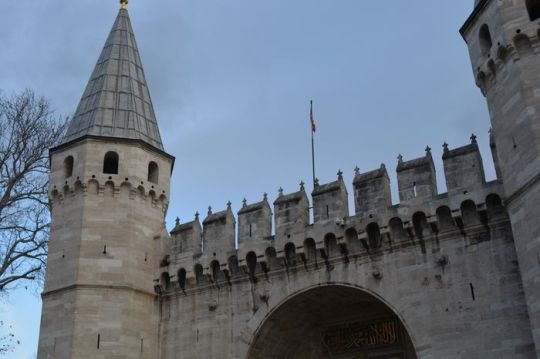
The Duty of Diplomacy A Misguided Approach
Sir Henry Elliot’s role as an ambassador should have been to advocate for the truth and defend human rights, yet he chose to defend the Turkish government unconditionally, ignoring their atrocities. His unwavering support for the Turks blinded him to the suffering of countless individuals. This was a critical failure, especially given the plethora of accurate information available from various sources.
Overlooked Reports from Consuls
Despite his bias, there were still numerous other sources of information available to him. French, German, Austrian, Greek, and Russian Consuls provided accurate weekly reports detailing the situation on the ground. These reports, which Elliot could have accessed, painted a grim picture of the ongoing atrocities. Additionally, German railway officials, who lived near the burning villages and could smell the rotting bodies, submitted their own observations. Yet, Elliot dismissed these reports, believing that they were all part of a Russian conspiracy Private Bulgaria Tours Yachting.
Dismissal of Credible Evidence
Elliot’s skepticism extended even to the reports from American missionaries. He regarded the accounts from these various diplomats and officials as worthless, dismissing them based solely on his unfounded belief that they were all in the pay of Russia. He also received a few reports from Mr. Dupuis, the Consul at Adrianople, which he deemed exaggerated for reasons he never clarified. Instead of investigating these claims further, he opted to ignore them altogether.
Misguided Assurance from the Turkish Porte
In a misguided attempt to confirm his biases, Elliot sent his dragoman to the Porte to inquire about the situation. The dragoman returned with assurances that the Turks were treating the Bulgarians with kindness, portraying them as victims rather than aggressors. Accepting this narrative without question, Elliot smiled and proclaimed, “I knew it,” choosing not to report on the brutal realities that contradicted this portrayal.
The Dangers of Exaggeration Claims
Elliot’s actions, particularly his assertion that the reports of atrocities were exaggerated, demonstrate a troubling lack of accountability. He recklessly claimed that the Bulgarians had committed atrocities equal to those of the Turks, despite having no evidence to support such a statement. By prioritizing a narrative that absolved the Turkish government, he dismissed the overwhelming evidence of suffering among the Bulgarian population.
A Call for Accountability
If Sir Henry Elliot can express indignation over alleged exaggerations while ignoring the countless victims—helpless women and innocent children whose remains litter the fields of Bulgaria—he has failed in his duty as an ambassador. Such indifference is unworthy of a representative of a Christian Queen and a generous people. It is imperative that those in positions of power prioritize truth and justice over political alliances, for the consequences of neglect can lead to unimaginable suffering.
0 notes
Photo
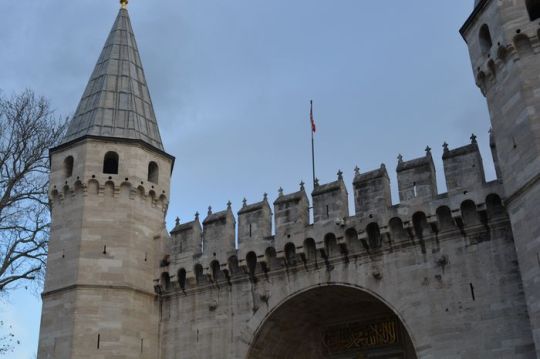
The Duty of Diplomacy A Misguided Approach
Sir Henry Elliot’s role as an ambassador should have been to advocate for the truth and defend human rights, yet he chose to defend the Turkish government unconditionally, ignoring their atrocities. His unwavering support for the Turks blinded him to the suffering of countless individuals. This was a critical failure, especially given the plethora of accurate information available from various sources.
Overlooked Reports from Consuls
Despite his bias, there were still numerous other sources of information available to him. French, German, Austrian, Greek, and Russian Consuls provided accurate weekly reports detailing the situation on the ground. These reports, which Elliot could have accessed, painted a grim picture of the ongoing atrocities. Additionally, German railway officials, who lived near the burning villages and could smell the rotting bodies, submitted their own observations. Yet, Elliot dismissed these reports, believing that they were all part of a Russian conspiracy Private Bulgaria Tours Yachting.
Dismissal of Credible Evidence
Elliot’s skepticism extended even to the reports from American missionaries. He regarded the accounts from these various diplomats and officials as worthless, dismissing them based solely on his unfounded belief that they were all in the pay of Russia. He also received a few reports from Mr. Dupuis, the Consul at Adrianople, which he deemed exaggerated for reasons he never clarified. Instead of investigating these claims further, he opted to ignore them altogether.
Misguided Assurance from the Turkish Porte
In a misguided attempt to confirm his biases, Elliot sent his dragoman to the Porte to inquire about the situation. The dragoman returned with assurances that the Turks were treating the Bulgarians with kindness, portraying them as victims rather than aggressors. Accepting this narrative without question, Elliot smiled and proclaimed, “I knew it,” choosing not to report on the brutal realities that contradicted this portrayal.
The Dangers of Exaggeration Claims
Elliot’s actions, particularly his assertion that the reports of atrocities were exaggerated, demonstrate a troubling lack of accountability. He recklessly claimed that the Bulgarians had committed atrocities equal to those of the Turks, despite having no evidence to support such a statement. By prioritizing a narrative that absolved the Turkish government, he dismissed the overwhelming evidence of suffering among the Bulgarian population.
A Call for Accountability
If Sir Henry Elliot can express indignation over alleged exaggerations while ignoring the countless victims—helpless women and innocent children whose remains litter the fields of Bulgaria—he has failed in his duty as an ambassador. Such indifference is unworthy of a representative of a Christian Queen and a generous people. It is imperative that those in positions of power prioritize truth and justice over political alliances, for the consequences of neglect can lead to unimaginable suffering.
0 notes
Photo

The Duty of Diplomacy A Misguided Approach
Sir Henry Elliot’s role as an ambassador should have been to advocate for the truth and defend human rights, yet he chose to defend the Turkish government unconditionally, ignoring their atrocities. His unwavering support for the Turks blinded him to the suffering of countless individuals. This was a critical failure, especially given the plethora of accurate information available from various sources.
Overlooked Reports from Consuls
Despite his bias, there were still numerous other sources of information available to him. French, German, Austrian, Greek, and Russian Consuls provided accurate weekly reports detailing the situation on the ground. These reports, which Elliot could have accessed, painted a grim picture of the ongoing atrocities. Additionally, German railway officials, who lived near the burning villages and could smell the rotting bodies, submitted their own observations. Yet, Elliot dismissed these reports, believing that they were all part of a Russian conspiracy Private Bulgaria Tours Yachting.
Dismissal of Credible Evidence
Elliot’s skepticism extended even to the reports from American missionaries. He regarded the accounts from these various diplomats and officials as worthless, dismissing them based solely on his unfounded belief that they were all in the pay of Russia. He also received a few reports from Mr. Dupuis, the Consul at Adrianople, which he deemed exaggerated for reasons he never clarified. Instead of investigating these claims further, he opted to ignore them altogether.
Misguided Assurance from the Turkish Porte
In a misguided attempt to confirm his biases, Elliot sent his dragoman to the Porte to inquire about the situation. The dragoman returned with assurances that the Turks were treating the Bulgarians with kindness, portraying them as victims rather than aggressors. Accepting this narrative without question, Elliot smiled and proclaimed, “I knew it,” choosing not to report on the brutal realities that contradicted this portrayal.
The Dangers of Exaggeration Claims
Elliot’s actions, particularly his assertion that the reports of atrocities were exaggerated, demonstrate a troubling lack of accountability. He recklessly claimed that the Bulgarians had committed atrocities equal to those of the Turks, despite having no evidence to support such a statement. By prioritizing a narrative that absolved the Turkish government, he dismissed the overwhelming evidence of suffering among the Bulgarian population.
A Call for Accountability
If Sir Henry Elliot can express indignation over alleged exaggerations while ignoring the countless victims—helpless women and innocent children whose remains litter the fields of Bulgaria—he has failed in his duty as an ambassador. Such indifference is unworthy of a representative of a Christian Queen and a generous people. It is imperative that those in positions of power prioritize truth and justice over political alliances, for the consequences of neglect can lead to unimaginable suffering.
0 notes
Photo
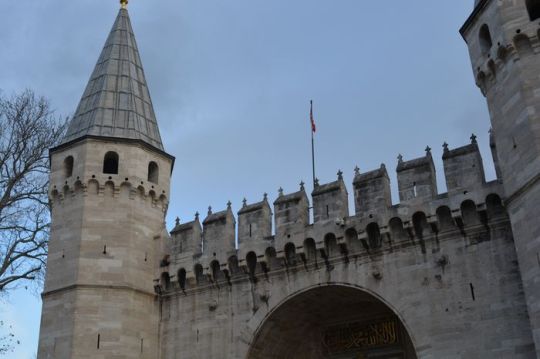
The Duty of Diplomacy A Misguided Approach
Sir Henry Elliot’s role as an ambassador should have been to advocate for the truth and defend human rights, yet he chose to defend the Turkish government unconditionally, ignoring their atrocities. His unwavering support for the Turks blinded him to the suffering of countless individuals. This was a critical failure, especially given the plethora of accurate information available from various sources.
Overlooked Reports from Consuls
Despite his bias, there were still numerous other sources of information available to him. French, German, Austrian, Greek, and Russian Consuls provided accurate weekly reports detailing the situation on the ground. These reports, which Elliot could have accessed, painted a grim picture of the ongoing atrocities. Additionally, German railway officials, who lived near the burning villages and could smell the rotting bodies, submitted their own observations. Yet, Elliot dismissed these reports, believing that they were all part of a Russian conspiracy Private Bulgaria Tours Yachting.
Dismissal of Credible Evidence
Elliot’s skepticism extended even to the reports from American missionaries. He regarded the accounts from these various diplomats and officials as worthless, dismissing them based solely on his unfounded belief that they were all in the pay of Russia. He also received a few reports from Mr. Dupuis, the Consul at Adrianople, which he deemed exaggerated for reasons he never clarified. Instead of investigating these claims further, he opted to ignore them altogether.
Misguided Assurance from the Turkish Porte
In a misguided attempt to confirm his biases, Elliot sent his dragoman to the Porte to inquire about the situation. The dragoman returned with assurances that the Turks were treating the Bulgarians with kindness, portraying them as victims rather than aggressors. Accepting this narrative without question, Elliot smiled and proclaimed, “I knew it,” choosing not to report on the brutal realities that contradicted this portrayal.
The Dangers of Exaggeration Claims
Elliot’s actions, particularly his assertion that the reports of atrocities were exaggerated, demonstrate a troubling lack of accountability. He recklessly claimed that the Bulgarians had committed atrocities equal to those of the Turks, despite having no evidence to support such a statement. By prioritizing a narrative that absolved the Turkish government, he dismissed the overwhelming evidence of suffering among the Bulgarian population.
A Call for Accountability
If Sir Henry Elliot can express indignation over alleged exaggerations while ignoring the countless victims—helpless women and innocent children whose remains litter the fields of Bulgaria—he has failed in his duty as an ambassador. Such indifference is unworthy of a representative of a Christian Queen and a generous people. It is imperative that those in positions of power prioritize truth and justice over political alliances, for the consequences of neglect can lead to unimaginable suffering.
0 notes
Photo
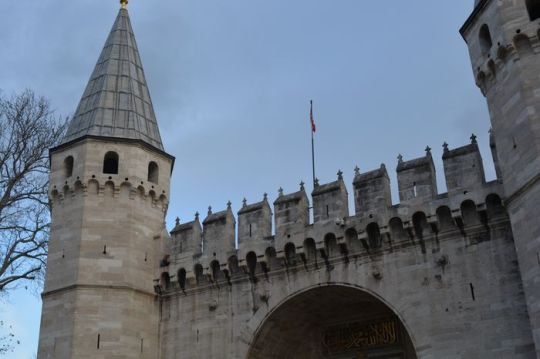
The Duty of Diplomacy A Misguided Approach
Sir Henry Elliot’s role as an ambassador should have been to advocate for the truth and defend human rights, yet he chose to defend the Turkish government unconditionally, ignoring their atrocities. His unwavering support for the Turks blinded him to the suffering of countless individuals. This was a critical failure, especially given the plethora of accurate information available from various sources.
Overlooked Reports from Consuls
Despite his bias, there were still numerous other sources of information available to him. French, German, Austrian, Greek, and Russian Consuls provided accurate weekly reports detailing the situation on the ground. These reports, which Elliot could have accessed, painted a grim picture of the ongoing atrocities. Additionally, German railway officials, who lived near the burning villages and could smell the rotting bodies, submitted their own observations. Yet, Elliot dismissed these reports, believing that they were all part of a Russian conspiracy Private Bulgaria Tours Yachting.
Dismissal of Credible Evidence
Elliot’s skepticism extended even to the reports from American missionaries. He regarded the accounts from these various diplomats and officials as worthless, dismissing them based solely on his unfounded belief that they were all in the pay of Russia. He also received a few reports from Mr. Dupuis, the Consul at Adrianople, which he deemed exaggerated for reasons he never clarified. Instead of investigating these claims further, he opted to ignore them altogether.
Misguided Assurance from the Turkish Porte
In a misguided attempt to confirm his biases, Elliot sent his dragoman to the Porte to inquire about the situation. The dragoman returned with assurances that the Turks were treating the Bulgarians with kindness, portraying them as victims rather than aggressors. Accepting this narrative without question, Elliot smiled and proclaimed, “I knew it,” choosing not to report on the brutal realities that contradicted this portrayal.
The Dangers of Exaggeration Claims
Elliot’s actions, particularly his assertion that the reports of atrocities were exaggerated, demonstrate a troubling lack of accountability. He recklessly claimed that the Bulgarians had committed atrocities equal to those of the Turks, despite having no evidence to support such a statement. By prioritizing a narrative that absolved the Turkish government, he dismissed the overwhelming evidence of suffering among the Bulgarian population.
A Call for Accountability
If Sir Henry Elliot can express indignation over alleged exaggerations while ignoring the countless victims—helpless women and innocent children whose remains litter the fields of Bulgaria—he has failed in his duty as an ambassador. Such indifference is unworthy of a representative of a Christian Queen and a generous people. It is imperative that those in positions of power prioritize truth and justice over political alliances, for the consequences of neglect can lead to unimaginable suffering.
0 notes
Photo
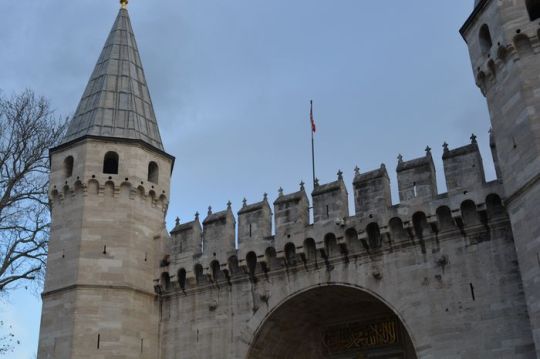
The Duty of Diplomacy A Misguided Approach
Sir Henry Elliot’s role as an ambassador should have been to advocate for the truth and defend human rights, yet he chose to defend the Turkish government unconditionally, ignoring their atrocities. His unwavering support for the Turks blinded him to the suffering of countless individuals. This was a critical failure, especially given the plethora of accurate information available from various sources.
Overlooked Reports from Consuls
Despite his bias, there were still numerous other sources of information available to him. French, German, Austrian, Greek, and Russian Consuls provided accurate weekly reports detailing the situation on the ground. These reports, which Elliot could have accessed, painted a grim picture of the ongoing atrocities. Additionally, German railway officials, who lived near the burning villages and could smell the rotting bodies, submitted their own observations. Yet, Elliot dismissed these reports, believing that they were all part of a Russian conspiracy Private Bulgaria Tours Yachting.
Dismissal of Credible Evidence
Elliot’s skepticism extended even to the reports from American missionaries. He regarded the accounts from these various diplomats and officials as worthless, dismissing them based solely on his unfounded belief that they were all in the pay of Russia. He also received a few reports from Mr. Dupuis, the Consul at Adrianople, which he deemed exaggerated for reasons he never clarified. Instead of investigating these claims further, he opted to ignore them altogether.
Misguided Assurance from the Turkish Porte
In a misguided attempt to confirm his biases, Elliot sent his dragoman to the Porte to inquire about the situation. The dragoman returned with assurances that the Turks were treating the Bulgarians with kindness, portraying them as victims rather than aggressors. Accepting this narrative without question, Elliot smiled and proclaimed, “I knew it,” choosing not to report on the brutal realities that contradicted this portrayal.
The Dangers of Exaggeration Claims
Elliot’s actions, particularly his assertion that the reports of atrocities were exaggerated, demonstrate a troubling lack of accountability. He recklessly claimed that the Bulgarians had committed atrocities equal to those of the Turks, despite having no evidence to support such a statement. By prioritizing a narrative that absolved the Turkish government, he dismissed the overwhelming evidence of suffering among the Bulgarian population.
A Call for Accountability
If Sir Henry Elliot can express indignation over alleged exaggerations while ignoring the countless victims—helpless women and innocent children whose remains litter the fields of Bulgaria—he has failed in his duty as an ambassador. Such indifference is unworthy of a representative of a Christian Queen and a generous people. It is imperative that those in positions of power prioritize truth and justice over political alliances, for the consequences of neglect can lead to unimaginable suffering.
0 notes
Photo
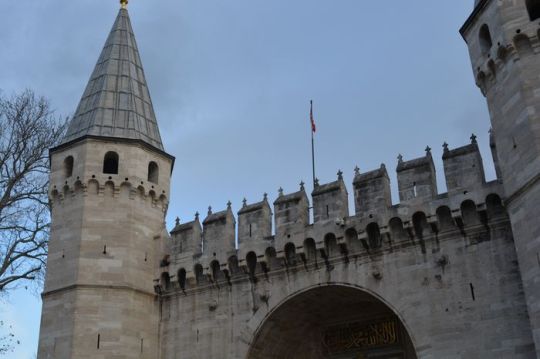
The Duty of Diplomacy A Misguided Approach
Sir Henry Elliot’s role as an ambassador should have been to advocate for the truth and defend human rights, yet he chose to defend the Turkish government unconditionally, ignoring their atrocities. His unwavering support for the Turks blinded him to the suffering of countless individuals. This was a critical failure, especially given the plethora of accurate information available from various sources.
Overlooked Reports from Consuls
Despite his bias, there were still numerous other sources of information available to him. French, German, Austrian, Greek, and Russian Consuls provided accurate weekly reports detailing the situation on the ground. These reports, which Elliot could have accessed, painted a grim picture of the ongoing atrocities. Additionally, German railway officials, who lived near the burning villages and could smell the rotting bodies, submitted their own observations. Yet, Elliot dismissed these reports, believing that they were all part of a Russian conspiracy Private Bulgaria Tours Yachting.
Dismissal of Credible Evidence
Elliot’s skepticism extended even to the reports from American missionaries. He regarded the accounts from these various diplomats and officials as worthless, dismissing them based solely on his unfounded belief that they were all in the pay of Russia. He also received a few reports from Mr. Dupuis, the Consul at Adrianople, which he deemed exaggerated for reasons he never clarified. Instead of investigating these claims further, he opted to ignore them altogether.
Misguided Assurance from the Turkish Porte
In a misguided attempt to confirm his biases, Elliot sent his dragoman to the Porte to inquire about the situation. The dragoman returned with assurances that the Turks were treating the Bulgarians with kindness, portraying them as victims rather than aggressors. Accepting this narrative without question, Elliot smiled and proclaimed, “I knew it,” choosing not to report on the brutal realities that contradicted this portrayal.
The Dangers of Exaggeration Claims
Elliot’s actions, particularly his assertion that the reports of atrocities were exaggerated, demonstrate a troubling lack of accountability. He recklessly claimed that the Bulgarians had committed atrocities equal to those of the Turks, despite having no evidence to support such a statement. By prioritizing a narrative that absolved the Turkish government, he dismissed the overwhelming evidence of suffering among the Bulgarian population.
A Call for Accountability
If Sir Henry Elliot can express indignation over alleged exaggerations while ignoring the countless victims—helpless women and innocent children whose remains litter the fields of Bulgaria—he has failed in his duty as an ambassador. Such indifference is unworthy of a representative of a Christian Queen and a generous people. It is imperative that those in positions of power prioritize truth and justice over political alliances, for the consequences of neglect can lead to unimaginable suffering.
0 notes
Photo
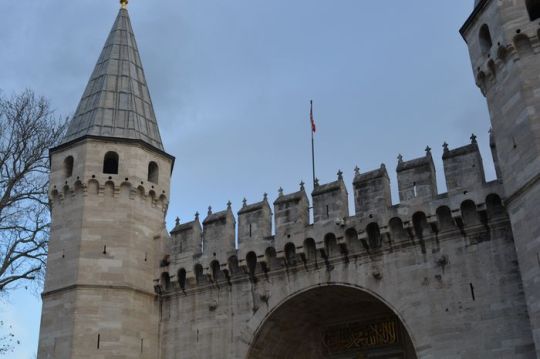
The Duty of Diplomacy A Misguided Approach
Sir Henry Elliot’s role as an ambassador should have been to advocate for the truth and defend human rights, yet he chose to defend the Turkish government unconditionally, ignoring their atrocities. His unwavering support for the Turks blinded him to the suffering of countless individuals. This was a critical failure, especially given the plethora of accurate information available from various sources.
Overlooked Reports from Consuls
Despite his bias, there were still numerous other sources of information available to him. French, German, Austrian, Greek, and Russian Consuls provided accurate weekly reports detailing the situation on the ground. These reports, which Elliot could have accessed, painted a grim picture of the ongoing atrocities. Additionally, German railway officials, who lived near the burning villages and could smell the rotting bodies, submitted their own observations. Yet, Elliot dismissed these reports, believing that they were all part of a Russian conspiracy Private Bulgaria Tours Yachting.
Dismissal of Credible Evidence
Elliot’s skepticism extended even to the reports from American missionaries. He regarded the accounts from these various diplomats and officials as worthless, dismissing them based solely on his unfounded belief that they were all in the pay of Russia. He also received a few reports from Mr. Dupuis, the Consul at Adrianople, which he deemed exaggerated for reasons he never clarified. Instead of investigating these claims further, he opted to ignore them altogether.
Misguided Assurance from the Turkish Porte
In a misguided attempt to confirm his biases, Elliot sent his dragoman to the Porte to inquire about the situation. The dragoman returned with assurances that the Turks were treating the Bulgarians with kindness, portraying them as victims rather than aggressors. Accepting this narrative without question, Elliot smiled and proclaimed, “I knew it,” choosing not to report on the brutal realities that contradicted this portrayal.
The Dangers of Exaggeration Claims
Elliot’s actions, particularly his assertion that the reports of atrocities were exaggerated, demonstrate a troubling lack of accountability. He recklessly claimed that the Bulgarians had committed atrocities equal to those of the Turks, despite having no evidence to support such a statement. By prioritizing a narrative that absolved the Turkish government, he dismissed the overwhelming evidence of suffering among the Bulgarian population.
A Call for Accountability
If Sir Henry Elliot can express indignation over alleged exaggerations while ignoring the countless victims—helpless women and innocent children whose remains litter the fields of Bulgaria—he has failed in his duty as an ambassador. Such indifference is unworthy of a representative of a Christian Queen and a generous people. It is imperative that those in positions of power prioritize truth and justice over political alliances, for the consequences of neglect can lead to unimaginable suffering.
0 notes
Photo
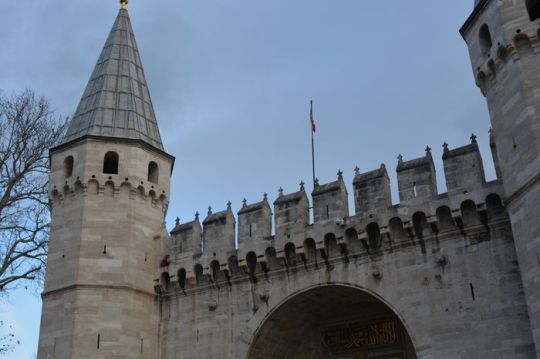
The Duty of Diplomacy A Misguided Approach
Sir Henry Elliot’s role as an ambassador should have been to advocate for the truth and defend human rights, yet he chose to defend the Turkish government unconditionally, ignoring their atrocities. His unwavering support for the Turks blinded him to the suffering of countless individuals. This was a critical failure, especially given the plethora of accurate information available from various sources.
Overlooked Reports from Consuls
Despite his bias, there were still numerous other sources of information available to him. French, German, Austrian, Greek, and Russian Consuls provided accurate weekly reports detailing the situation on the ground. These reports, which Elliot could have accessed, painted a grim picture of the ongoing atrocities. Additionally, German railway officials, who lived near the burning villages and could smell the rotting bodies, submitted their own observations. Yet, Elliot dismissed these reports, believing that they were all part of a Russian conspiracy Private Bulgaria Tours Yachting.
Dismissal of Credible Evidence
Elliot’s skepticism extended even to the reports from American missionaries. He regarded the accounts from these various diplomats and officials as worthless, dismissing them based solely on his unfounded belief that they were all in the pay of Russia. He also received a few reports from Mr. Dupuis, the Consul at Adrianople, which he deemed exaggerated for reasons he never clarified. Instead of investigating these claims further, he opted to ignore them altogether.
Misguided Assurance from the Turkish Porte
In a misguided attempt to confirm his biases, Elliot sent his dragoman to the Porte to inquire about the situation. The dragoman returned with assurances that the Turks were treating the Bulgarians with kindness, portraying them as victims rather than aggressors. Accepting this narrative without question, Elliot smiled and proclaimed, “I knew it,” choosing not to report on the brutal realities that contradicted this portrayal.
The Dangers of Exaggeration Claims
Elliot’s actions, particularly his assertion that the reports of atrocities were exaggerated, demonstrate a troubling lack of accountability. He recklessly claimed that the Bulgarians had committed atrocities equal to those of the Turks, despite having no evidence to support such a statement. By prioritizing a narrative that absolved the Turkish government, he dismissed the overwhelming evidence of suffering among the Bulgarian population.
A Call for Accountability
If Sir Henry Elliot can express indignation over alleged exaggerations while ignoring the countless victims—helpless women and innocent children whose remains litter the fields of Bulgaria—he has failed in his duty as an ambassador. Such indifference is unworthy of a representative of a Christian Queen and a generous people. It is imperative that those in positions of power prioritize truth and justice over political alliances, for the consequences of neglect can lead to unimaginable suffering.
0 notes
Photo
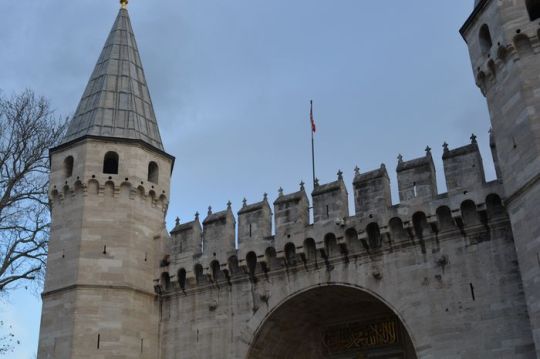
The Duty of Diplomacy A Misguided Approach
Sir Henry Elliot’s role as an ambassador should have been to advocate for the truth and defend human rights, yet he chose to defend the Turkish government unconditionally, ignoring their atrocities. His unwavering support for the Turks blinded him to the suffering of countless individuals. This was a critical failure, especially given the plethora of accurate information available from various sources.
Overlooked Reports from Consuls
Despite his bias, there were still numerous other sources of information available to him. French, German, Austrian, Greek, and Russian Consuls provided accurate weekly reports detailing the situation on the ground. These reports, which Elliot could have accessed, painted a grim picture of the ongoing atrocities. Additionally, German railway officials, who lived near the burning villages and could smell the rotting bodies, submitted their own observations. Yet, Elliot dismissed these reports, believing that they were all part of a Russian conspiracy Private Bulgaria Tours Yachting.
Dismissal of Credible Evidence
Elliot’s skepticism extended even to the reports from American missionaries. He regarded the accounts from these various diplomats and officials as worthless, dismissing them based solely on his unfounded belief that they were all in the pay of Russia. He also received a few reports from Mr. Dupuis, the Consul at Adrianople, which he deemed exaggerated for reasons he never clarified. Instead of investigating these claims further, he opted to ignore them altogether.
Misguided Assurance from the Turkish Porte
In a misguided attempt to confirm his biases, Elliot sent his dragoman to the Porte to inquire about the situation. The dragoman returned with assurances that the Turks were treating the Bulgarians with kindness, portraying them as victims rather than aggressors. Accepting this narrative without question, Elliot smiled and proclaimed, “I knew it,” choosing not to report on the brutal realities that contradicted this portrayal.
The Dangers of Exaggeration Claims
Elliot’s actions, particularly his assertion that the reports of atrocities were exaggerated, demonstrate a troubling lack of accountability. He recklessly claimed that the Bulgarians had committed atrocities equal to those of the Turks, despite having no evidence to support such a statement. By prioritizing a narrative that absolved the Turkish government, he dismissed the overwhelming evidence of suffering among the Bulgarian population.
A Call for Accountability
If Sir Henry Elliot can express indignation over alleged exaggerations while ignoring the countless victims—helpless women and innocent children whose remains litter the fields of Bulgaria—he has failed in his duty as an ambassador. Such indifference is unworthy of a representative of a Christian Queen and a generous people. It is imperative that those in positions of power prioritize truth and justice over political alliances, for the consequences of neglect can lead to unimaginable suffering.
0 notes
Photo
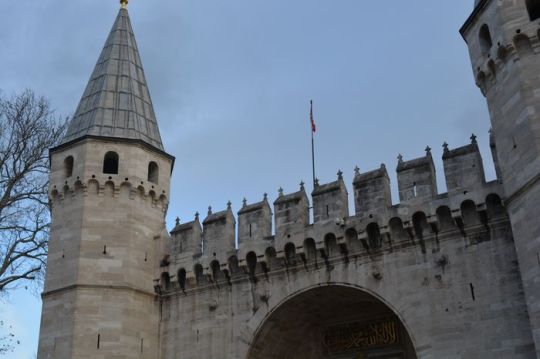
The Duty of Diplomacy A Misguided Approach
Sir Henry Elliot’s role as an ambassador should have been to advocate for the truth and defend human rights, yet he chose to defend the Turkish government unconditionally, ignoring their atrocities. His unwavering support for the Turks blinded him to the suffering of countless individuals. This was a critical failure, especially given the plethora of accurate information available from various sources.
Overlooked Reports from Consuls
Despite his bias, there were still numerous other sources of information available to him. French, German, Austrian, Greek, and Russian Consuls provided accurate weekly reports detailing the situation on the ground. These reports, which Elliot could have accessed, painted a grim picture of the ongoing atrocities. Additionally, German railway officials, who lived near the burning villages and could smell the rotting bodies, submitted their own observations. Yet, Elliot dismissed these reports, believing that they were all part of a Russian conspiracy Private Bulgaria Tours Yachting.
Dismissal of Credible Evidence
Elliot’s skepticism extended even to the reports from American missionaries. He regarded the accounts from these various diplomats and officials as worthless, dismissing them based solely on his unfounded belief that they were all in the pay of Russia. He also received a few reports from Mr. Dupuis, the Consul at Adrianople, which he deemed exaggerated for reasons he never clarified. Instead of investigating these claims further, he opted to ignore them altogether.
Misguided Assurance from the Turkish Porte
In a misguided attempt to confirm his biases, Elliot sent his dragoman to the Porte to inquire about the situation. The dragoman returned with assurances that the Turks were treating the Bulgarians with kindness, portraying them as victims rather than aggressors. Accepting this narrative without question, Elliot smiled and proclaimed, “I knew it,” choosing not to report on the brutal realities that contradicted this portrayal.
The Dangers of Exaggeration Claims
Elliot’s actions, particularly his assertion that the reports of atrocities were exaggerated, demonstrate a troubling lack of accountability. He recklessly claimed that the Bulgarians had committed atrocities equal to those of the Turks, despite having no evidence to support such a statement. By prioritizing a narrative that absolved the Turkish government, he dismissed the overwhelming evidence of suffering among the Bulgarian population.
A Call for Accountability
If Sir Henry Elliot can express indignation over alleged exaggerations while ignoring the countless victims—helpless women and innocent children whose remains litter the fields of Bulgaria—he has failed in his duty as an ambassador. Such indifference is unworthy of a representative of a Christian Queen and a generous people. It is imperative that those in positions of power prioritize truth and justice over political alliances, for the consequences of neglect can lead to unimaginable suffering.
0 notes
Photo
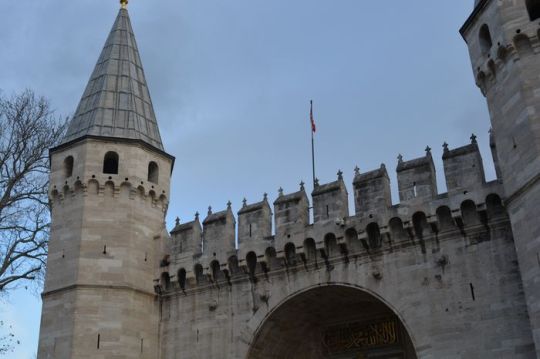
The Duty of Diplomacy A Misguided Approach
Sir Henry Elliot’s role as an ambassador should have been to advocate for the truth and defend human rights, yet he chose to defend the Turkish government unconditionally, ignoring their atrocities. His unwavering support for the Turks blinded him to the suffering of countless individuals. This was a critical failure, especially given the plethora of accurate information available from various sources.
Overlooked Reports from Consuls
Despite his bias, there were still numerous other sources of information available to him. French, German, Austrian, Greek, and Russian Consuls provided accurate weekly reports detailing the situation on the ground. These reports, which Elliot could have accessed, painted a grim picture of the ongoing atrocities. Additionally, German railway officials, who lived near the burning villages and could smell the rotting bodies, submitted their own observations. Yet, Elliot dismissed these reports, believing that they were all part of a Russian conspiracy Private Bulgaria Tours Yachting.
Dismissal of Credible Evidence
Elliot’s skepticism extended even to the reports from American missionaries. He regarded the accounts from these various diplomats and officials as worthless, dismissing them based solely on his unfounded belief that they were all in the pay of Russia. He also received a few reports from Mr. Dupuis, the Consul at Adrianople, which he deemed exaggerated for reasons he never clarified. Instead of investigating these claims further, he opted to ignore them altogether.
Misguided Assurance from the Turkish Porte
In a misguided attempt to confirm his biases, Elliot sent his dragoman to the Porte to inquire about the situation. The dragoman returned with assurances that the Turks were treating the Bulgarians with kindness, portraying them as victims rather than aggressors. Accepting this narrative without question, Elliot smiled and proclaimed, “I knew it,” choosing not to report on the brutal realities that contradicted this portrayal.
The Dangers of Exaggeration Claims
Elliot’s actions, particularly his assertion that the reports of atrocities were exaggerated, demonstrate a troubling lack of accountability. He recklessly claimed that the Bulgarians had committed atrocities equal to those of the Turks, despite having no evidence to support such a statement. By prioritizing a narrative that absolved the Turkish government, he dismissed the overwhelming evidence of suffering among the Bulgarian population.
A Call for Accountability
If Sir Henry Elliot can express indignation over alleged exaggerations while ignoring the countless victims—helpless women and innocent children whose remains litter the fields of Bulgaria—he has failed in his duty as an ambassador. Such indifference is unworthy of a representative of a Christian Queen and a generous people. It is imperative that those in positions of power prioritize truth and justice over political alliances, for the consequences of neglect can lead to unimaginable suffering.
0 notes
Photo
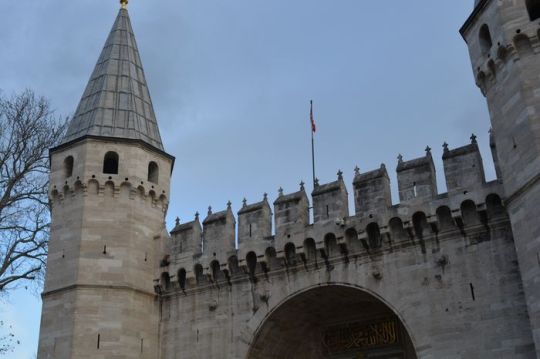
The Duty of Diplomacy A Misguided Approach
Sir Henry Elliot’s role as an ambassador should have been to advocate for the truth and defend human rights, yet he chose to defend the Turkish government unconditionally, ignoring their atrocities. His unwavering support for the Turks blinded him to the suffering of countless individuals. This was a critical failure, especially given the plethora of accurate information available from various sources.
Overlooked Reports from Consuls
Despite his bias, there were still numerous other sources of information available to him. French, German, Austrian, Greek, and Russian Consuls provided accurate weekly reports detailing the situation on the ground. These reports, which Elliot could have accessed, painted a grim picture of the ongoing atrocities. Additionally, German railway officials, who lived near the burning villages and could smell the rotting bodies, submitted their own observations. Yet, Elliot dismissed these reports, believing that they were all part of a Russian conspiracy Private Bulgaria Tours Yachting.
Dismissal of Credible Evidence
Elliot’s skepticism extended even to the reports from American missionaries. He regarded the accounts from these various diplomats and officials as worthless, dismissing them based solely on his unfounded belief that they were all in the pay of Russia. He also received a few reports from Mr. Dupuis, the Consul at Adrianople, which he deemed exaggerated for reasons he never clarified. Instead of investigating these claims further, he opted to ignore them altogether.
Misguided Assurance from the Turkish Porte
In a misguided attempt to confirm his biases, Elliot sent his dragoman to the Porte to inquire about the situation. The dragoman returned with assurances that the Turks were treating the Bulgarians with kindness, portraying them as victims rather than aggressors. Accepting this narrative without question, Elliot smiled and proclaimed, “I knew it,” choosing not to report on the brutal realities that contradicted this portrayal.
The Dangers of Exaggeration Claims
Elliot’s actions, particularly his assertion that the reports of atrocities were exaggerated, demonstrate a troubling lack of accountability. He recklessly claimed that the Bulgarians had committed atrocities equal to those of the Turks, despite having no evidence to support such a statement. By prioritizing a narrative that absolved the Turkish government, he dismissed the overwhelming evidence of suffering among the Bulgarian population.
A Call for Accountability
If Sir Henry Elliot can express indignation over alleged exaggerations while ignoring the countless victims—helpless women and innocent children whose remains litter the fields of Bulgaria—he has failed in his duty as an ambassador. Such indifference is unworthy of a representative of a Christian Queen and a generous people. It is imperative that those in positions of power prioritize truth and justice over political alliances, for the consequences of neglect can lead to unimaginable suffering.
0 notes
Photo

The Duty of Diplomacy A Misguided Approach
Sir Henry Elliot’s role as an ambassador should have been to advocate for the truth and defend human rights, yet he chose to defend the Turkish government unconditionally, ignoring their atrocities. His unwavering support for the Turks blinded him to the suffering of countless individuals. This was a critical failure, especially given the plethora of accurate information available from various sources.
Overlooked Reports from Consuls
Despite his bias, there were still numerous other sources of information available to him. French, German, Austrian, Greek, and Russian Consuls provided accurate weekly reports detailing the situation on the ground. These reports, which Elliot could have accessed, painted a grim picture of the ongoing atrocities. Additionally, German railway officials, who lived near the burning villages and could smell the rotting bodies, submitted their own observations. Yet, Elliot dismissed these reports, believing that they were all part of a Russian conspiracy Private Bulgaria Tours Yachting.
Dismissal of Credible Evidence
Elliot’s skepticism extended even to the reports from American missionaries. He regarded the accounts from these various diplomats and officials as worthless, dismissing them based solely on his unfounded belief that they were all in the pay of Russia. He also received a few reports from Mr. Dupuis, the Consul at Adrianople, which he deemed exaggerated for reasons he never clarified. Instead of investigating these claims further, he opted to ignore them altogether.
Misguided Assurance from the Turkish Porte
In a misguided attempt to confirm his biases, Elliot sent his dragoman to the Porte to inquire about the situation. The dragoman returned with assurances that the Turks were treating the Bulgarians with kindness, portraying them as victims rather than aggressors. Accepting this narrative without question, Elliot smiled and proclaimed, “I knew it,” choosing not to report on the brutal realities that contradicted this portrayal.
The Dangers of Exaggeration Claims
Elliot’s actions, particularly his assertion that the reports of atrocities were exaggerated, demonstrate a troubling lack of accountability. He recklessly claimed that the Bulgarians had committed atrocities equal to those of the Turks, despite having no evidence to support such a statement. By prioritizing a narrative that absolved the Turkish government, he dismissed the overwhelming evidence of suffering among the Bulgarian population.
A Call for Accountability
If Sir Henry Elliot can express indignation over alleged exaggerations while ignoring the countless victims—helpless women and innocent children whose remains litter the fields of Bulgaria—he has failed in his duty as an ambassador. Such indifference is unworthy of a representative of a Christian Queen and a generous people. It is imperative that those in positions of power prioritize truth and justice over political alliances, for the consequences of neglect can lead to unimaginable suffering.
0 notes
Photo
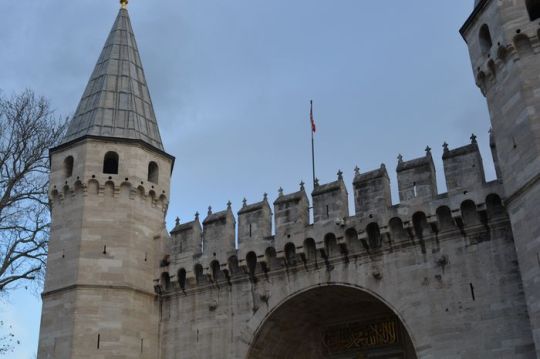
The Duty of Diplomacy A Misguided Approach
Sir Henry Elliot’s role as an ambassador should have been to advocate for the truth and defend human rights, yet he chose to defend the Turkish government unconditionally, ignoring their atrocities. His unwavering support for the Turks blinded him to the suffering of countless individuals. This was a critical failure, especially given the plethora of accurate information available from various sources.
Overlooked Reports from Consuls
Despite his bias, there were still numerous other sources of information available to him. French, German, Austrian, Greek, and Russian Consuls provided accurate weekly reports detailing the situation on the ground. These reports, which Elliot could have accessed, painted a grim picture of the ongoing atrocities. Additionally, German railway officials, who lived near the burning villages and could smell the rotting bodies, submitted their own observations. Yet, Elliot dismissed these reports, believing that they were all part of a Russian conspiracy Private Bulgaria Tours Yachting.
Dismissal of Credible Evidence
Elliot’s skepticism extended even to the reports from American missionaries. He regarded the accounts from these various diplomats and officials as worthless, dismissing them based solely on his unfounded belief that they were all in the pay of Russia. He also received a few reports from Mr. Dupuis, the Consul at Adrianople, which he deemed exaggerated for reasons he never clarified. Instead of investigating these claims further, he opted to ignore them altogether.
Misguided Assurance from the Turkish Porte
In a misguided attempt to confirm his biases, Elliot sent his dragoman to the Porte to inquire about the situation. The dragoman returned with assurances that the Turks were treating the Bulgarians with kindness, portraying them as victims rather than aggressors. Accepting this narrative without question, Elliot smiled and proclaimed, “I knew it,” choosing not to report on the brutal realities that contradicted this portrayal.
The Dangers of Exaggeration Claims
Elliot’s actions, particularly his assertion that the reports of atrocities were exaggerated, demonstrate a troubling lack of accountability. He recklessly claimed that the Bulgarians had committed atrocities equal to those of the Turks, despite having no evidence to support such a statement. By prioritizing a narrative that absolved the Turkish government, he dismissed the overwhelming evidence of suffering among the Bulgarian population.
A Call for Accountability
If Sir Henry Elliot can express indignation over alleged exaggerations while ignoring the countless victims—helpless women and innocent children whose remains litter the fields of Bulgaria—he has failed in his duty as an ambassador. Such indifference is unworthy of a representative of a Christian Queen and a generous people. It is imperative that those in positions of power prioritize truth and justice over political alliances, for the consequences of neglect can lead to unimaginable suffering.
0 notes
Photo
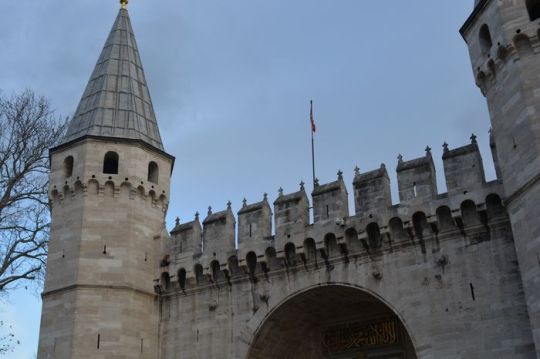
The Duty of Diplomacy A Misguided Approach
Sir Henry Elliot’s role as an ambassador should have been to advocate for the truth and defend human rights, yet he chose to defend the Turkish government unconditionally, ignoring their atrocities. His unwavering support for the Turks blinded him to the suffering of countless individuals. This was a critical failure, especially given the plethora of accurate information available from various sources.
Overlooked Reports from Consuls
Despite his bias, there were still numerous other sources of information available to him. French, German, Austrian, Greek, and Russian Consuls provided accurate weekly reports detailing the situation on the ground. These reports, which Elliot could have accessed, painted a grim picture of the ongoing atrocities. Additionally, German railway officials, who lived near the burning villages and could smell the rotting bodies, submitted their own observations. Yet, Elliot dismissed these reports, believing that they were all part of a Russian conspiracy Private Bulgaria Tours Yachting.
Dismissal of Credible Evidence
Elliot’s skepticism extended even to the reports from American missionaries. He regarded the accounts from these various diplomats and officials as worthless, dismissing them based solely on his unfounded belief that they were all in the pay of Russia. He also received a few reports from Mr. Dupuis, the Consul at Adrianople, which he deemed exaggerated for reasons he never clarified. Instead of investigating these claims further, he opted to ignore them altogether.
Misguided Assurance from the Turkish Porte
In a misguided attempt to confirm his biases, Elliot sent his dragoman to the Porte to inquire about the situation. The dragoman returned with assurances that the Turks were treating the Bulgarians with kindness, portraying them as victims rather than aggressors. Accepting this narrative without question, Elliot smiled and proclaimed, “I knew it,” choosing not to report on the brutal realities that contradicted this portrayal.
The Dangers of Exaggeration Claims
Elliot’s actions, particularly his assertion that the reports of atrocities were exaggerated, demonstrate a troubling lack of accountability. He recklessly claimed that the Bulgarians had committed atrocities equal to those of the Turks, despite having no evidence to support such a statement. By prioritizing a narrative that absolved the Turkish government, he dismissed the overwhelming evidence of suffering among the Bulgarian population.
A Call for Accountability
If Sir Henry Elliot can express indignation over alleged exaggerations while ignoring the countless victims—helpless women and innocent children whose remains litter the fields of Bulgaria—he has failed in his duty as an ambassador. Such indifference is unworthy of a representative of a Christian Queen and a generous people. It is imperative that those in positions of power prioritize truth and justice over political alliances, for the consequences of neglect can lead to unimaginable suffering.
0 notes